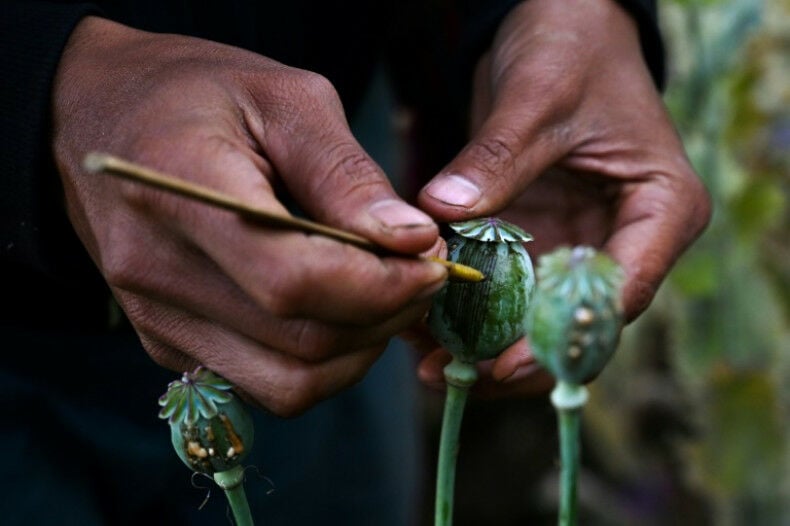Myanmar overtakes Afghanistan as world’s opium giant

Myanmar surpassed Afghanistan to become the globe’s leading opium producer, leaving the world stunned. The United Nations Office for Drugs and Crime (UNODC) dropped a bombshell report today, December 12, disclosing alarming figures that signal a seismic shift in the illicit drug trade landscape.
Myanmar, the new opium powerhouse, produced a staggering 1,080 metric tonnes of opium this year, eclipsing Afghanistan’s diminished output of a mere 330 tonnes after the Taliban’s stringent ban on poppy cultivation. The Golden Triangle region, notorious for illegal drug activities, has become the epicentre of this nefarious trade.
The UNODC report paints a grim picture of Myanmar’s opiate economy, which has skyrocketed to an estimated value between US$1 billion (35 billion baht) and US$2.4 billion. This alarming surge represents a hefty 1.7 to 4.1% of the country’s 2022 GDP, highlighting the magnitude of the crisis. Last year’s opium production of 790 metric tonnes in Myanmar now pales in comparison.
Myanmar’s legal economy, ravaged by conflict and instability since the military coup in 2021, has provided fertile ground for the illicit opium trade. The lack of market access, crumbling infrastructure, and rampant inflation have pushed desperate farmers towards cultivating poppy, exacerbating the crisis.
The UNODC grimly notes that opium production for 2022 to 2023 has reached levels unseen in over two decades. Factors such as increased sophistication in cultivation methods, enhanced investment, and better practices have contributed to the surge. This includes improved irrigation techniques and potential fertiliser use, all driving up opium yields.
Shan state, the primary cultivation area in Myanmar, is grappling with increased conflict, exacerbated by recent clashes between ethnic minority armed groups and the junta. Accounting for a substantial 88% of the national opium poppy areas, Shan state has witnessed a concerning rise in opium yield per hectare from 19.8 kilogrammes last year to 29.4 kilogrammes this year, reported Bangkok Post.
Expansion in Chaos
The UN report also highlights escalating opium cultivation in northern Kachin state and Chin state on the border with India. Analysts suggest that the military, which seized power in 2021, is not committed to curbing this multi-billion dollar trade, casting doubts on the effectiveness of their efforts.
In a rare admission, Myanmar’s Central Committee on Drug Abuse Control acknowledged earlier this year that their attempts to crush the opium trade were futile. This alarming revelation further underscores the gravity of the situation and raises questions about the nation’s commitment to eradicating this burgeoning crisis.
Myanmar’s unprecedented rise as the opium giant is not only a threat to regional stability but also raises concerns about global efforts to combat illicit drug production.
Latest Thailand News
Follow The Thaiger on Google News:


























